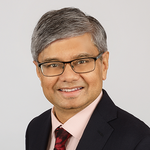Blog
From small beginnings, big impact
2020 marks the 35th year of UNU-WIDER’s impact in the sphere of development economics. Over the years, the institute has influenced the discourse, contributed to better policy making, and through its partnerships with national governments, international organizations, and the United Nations, worked on solutions to pressing global problems such as famine, poverty, underdevelopment, economic instability, environmental decline, indebtedness, inequality, conflict, state fragility, and the underrepresentation of developing countries in global decision-making. This year, while the institute continues this important work, it will also take a moment to look back at 35 years of pioneering accomplishments, big and small.
For me, it starts with the early research projects and the subsequent books that UNU-WIDER published in its formative years. I admire the way these works challenged current thinking and generated debate – particularly the works of Amartya Sen and Jean Drèze, Martha Nussbaum, and Lance Taylor that questioned how we measure development and well-being, and that looked critically at structural adjustment programmes and global inequality – these projects quickly positioned UNU-WIDER as a think-tank that wasn’t afraid to challenge the status quo.
As a young Assistant Professor starting out my career in India, UNU-WIDER’s books had a transformational effect on the way I thought about myself as a development economist and on my understanding of how research can help create a fairer and more just society. So, when the opportunity arose earlier last year to make eight of these early, seminal works, available on open access, I jumped at it.
35 years of research for action
Not only are these publications just as relevant today as they were 30 years ago, the prominence of these books and the effect the author’s work had on the development discourse is just one example of how UNU-WIDER’s research has the potential to generate bold and ambitious change in policy and practice. UNU-WIDER’s first book, published in 1989, Hunger and Public Action by Amartya Sen and Jean Drèze, is a perfect example. As Nicholas Stern, the former Chief Economist of the World Bank has written:
"[the book] broadened public understanding of hunger, promoting a definition that encompasses social as well as biological disadvantages. [Sen and Drèze] challenge the idea that famine is caused by food’s unavailability, instead arguing that it is driven by individuals’ inability to afford it. And they highlight the importance of democracy in preventing famine, arguing for the public provision of goods and services to combat it."
This work revealed that the horror of famine is preventable by states and public action, and its impacts have been even more widespread, rippling through the academic world, changing the way development practitioners and policy makers view development, and seeping into the core of how policies are made. It is an honour to celebrate its achievements in a short documentary that demonstrates how research leads to impact.
A history of collaboration and thought leadership
UNU-WIDER led the way by asking the really important questions in development policy in those early days. By bringing together a network of scholars and practitioners from all around the world to address global development challenges, UNU-WIDER became an independent and respected voice both within the United Nations and globally.
Before I joined the institute in 2019, UNU-WIDER books already filled my shelves. In recent years, I had also grown familiar with some of UNU-WIDER’s capacity building programmes as I bid farewell to students and colleagues who were off to Helsinki for the PhD fellowship or as visiting scholars.
Throughout my career, I frequently interacted with people from the UNU-WIDER network. Given just how many scholars have been a part of UNU-WIDER’s history, it’s difficult not to really.
When I saw my own opportunity to join that history, I must admit, while I was excited to join UNU-WIDER and bring my own fresh ideas to the institute, it wasn’t until I arrived and settled in to the director’s chair that I came to fully appreciate the extent of the capacity building efforts around the world, the significance of the country programmes, and the vast potential that UNU-WIDER holds to be a transformational force.
Looking forward
Going forward, I will ensure that UNU-WIDER’s research continues to influence the work of national governments, NGOs, the United Nations, and other international organizations. Through our partnerships with governments and research organizations in developing countries (for example, in Mozambique, Southern Africa, and elsewhere), we are co-creating research, strengthening capacity in research and policy formation, and working together to address the core concerns of Southern policy makers.
Our capacity building programmes will continue to provide skills and knowledge to the next generation of researchers, with particular attention to empowering those from the Global South, especially women. Most of all, I look forward to shepherding UNU-WIDER back to its roots, back to the kind of work that drew me to it all those years ago, setting the research agenda in international development by producing research on the most pressing and important policy concerns, including how to achieve the ambitious 2030 agenda
For 35 years, the institute has impacted the development discourse. In the near future, we will be sending out a request for stories from the WIDER network and I look forward to hearing more about how the institute has impacted the people who have interacted with it, the stories of those who walked the halls, the people who wrote the papers and chapters, those who made UNU-WIDER what it has become, and also those, like me, who until recently, admired from afar.
 Join the network
Join the network



